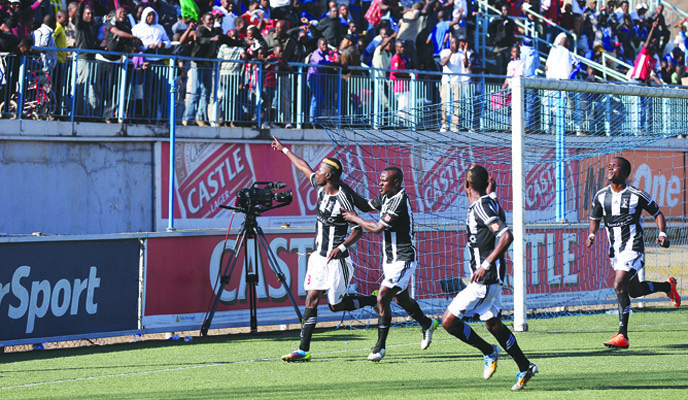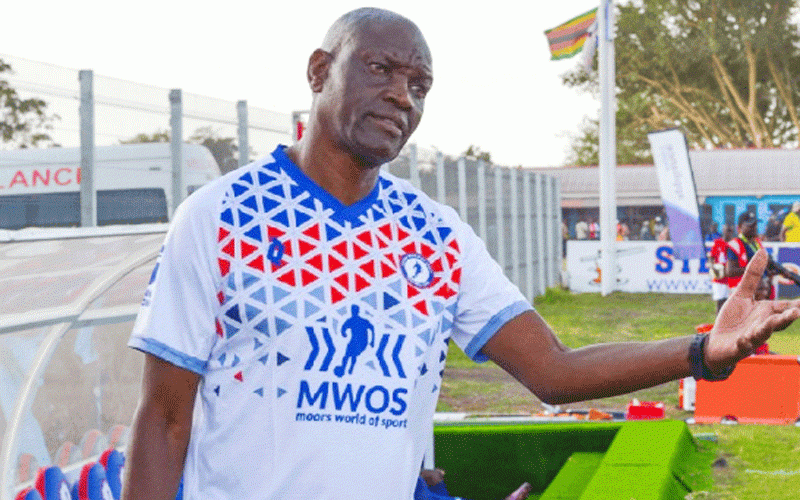
“DOING a Leeds” is an English football phrase which has become synonymous with the potential dire consequences of financial mismanagement at football clubs, following the popular side’s rapid decline in the 2000s.
BY DANIEL NHAKANISO
Leeds United, then a Premier League club, invested heavily to reach the semi-finals of the lucrative Champions League European competition, but in the process built up large debts.
The club suffered a financial meltdown after failing to continue to qualify for the competition, and subsequently dropped down two levels of the English football professional football system, for the first time in their history.
There are many other examples of famous clubs which went under at one time or another, from Scottish giants Rangers which plunged into administration in 2012 to English side Portsmouth which was once home to former Warriors striker Benjani Mwaruwari.
In Zimbabwe the collapse of football teams has become synonymous with relegation if one looks at the number of teams which have folded in the last seven years alone.
Of the 23 football clubs that have been relegated since 2010 — Lengthens, Douglas Warriors, FC Victoria, Zimbabwe Saints, Shooting Stars, Kiglon Bird, Blue Rangers, Hardbody, Quelaton, Tripple B, Monomotapa, Motor Action, Black Mambas, Gunners, Masvingo United, Flame Lily, Whawha, Dongo Sawmills, Chiredzi, Shabanie Mine, Black Rhinos, Buffaloes and Bantu Rovers — only six have survived and remain active today.
What has become very clear is that the landscape is now very hostile and soon some of the country’s oldest and biggest clubs which have in the past been spared could fall victim to the problems that haunted some of the collapsed teams.
- Chamisa under fire over US$120K donation
- Mavhunga puts DeMbare into Chibuku quarterfinals
- Pension funds bet on Cabora Bassa oilfields
- Councils defy govt fire tender directive
Keep Reading
While they have shared a total 18 league titles since beginning of the modern Premier Soccer League in 1992, the prevailing tough economic environment and arrival of richer newcomers has left Zimbabwean football’s biggest teams fighting for survival.
Known as “The Big Three” of Zimbabwe football — Dynamos, Highlanders and to a certain extent CAPS United — are without doubt the most important teams in Zimbabwe’s league by way of revenue to the PSL.
The league and several service providers of football matches in the country get their biggest pay cheque from these three due to their superior fan base.
By virtue of being the best supported teams in the country, smaller and financially vulnerable clubs have depended on Highlanders and Dynamos’ countrywide magnetism to boost their gate-takings whenever the former champions visit them.
No doubt, this popularity has contributed significantly to success on the field of play, with Dynamos and Highlanders winning the championship eight and six times respectively in the 24 years of the modern PSL. CAPS United captured their fourth PSL title last season.
Only seven other teams — Black Aces, Amazulu, Monomotapa, Gunners, Motor Action, Chicken Inn and Monomotapa — have managed to win the title in the period under review.
Six of the seven, however, are no longer in existence, forced into extinction by a fragile financial situation that has also thrown several other clubs out of business.
Proud heritage aside, the Big Three is miserably failing to stamp authority on the financial front. Dynamos and Highlanders are in particular predicament following expiry of their sponsorship deal with BancABC.
The two have enjoyed the privilege of the sponsorship since 2011. BancABC paid the salaries of players and technical staff, with the clubs taking care of winning bonuses and signing-on fees.
But with the pan-African financial services provider yet to commit on a new deal, the two giants, which have reportedly been facing financial challenges due to mounting debts, could be left facing an uncertain future.
Highlanders, the oldest club in the country with a rich history spanning almost nine decades, are reportedly facing a crippling debt of close to $1 million. It’s a lot of money for a club like Highlanders. It gets to the heart of the club’s future.
Troubled by the mounting debt, life club members last July resolved at a crisis meeting to each pay a monthly fee as part of desperate measures to sustain the club.
The members, who are expected to meet today to deliberate on the club’s survival during their annual general meeting, said they would fork out a minimum $20 each towards working capital at the club as the first measure to deal with the financial problems.
CAPS, the third of the Big Three, are also grappling with financial difficulties of their own. Despite claiming their fourth PSL title and fifth overall last season, CAPS endured a difficult financial year and on several occasions players threatened to boycott matches due to late payment of dues.
Harare giants Dynamos, who last year completed their second successive season without any silverware, are also in a similar predicament. DeMbare continue to be hamstrung by a debt of around $250 000 owed to CBZ Bank Limited which at one time had ballooned to around $400 000.
Property belonging to Dynamos officials was almost auctioned in the capital last year to offset the $250 000 debt before it was spared after an inter-pleaders application blocked the sale.
Financial troubles aside, DeMbare have also been haunted by a volatile ownership wrangle with a rival faction made up of former players involved in an intense battle to take over the running of the club from the current board of directors led by Bernard Marriot-Lusengo.
Dynamos president Keni Mubaiwa admitted in an interview with Standardsport last week that the club was worried by the uncertainty surrounding the BancABC sponsorship.
“We are yet to hear from BancABC but we are still hopeful that something will come up. Obviously without their support it will be tougher but people mustn’t panic,” he said.
However, as a knock-on effect Mubaiwa admitted Dynamos was increasingly finding it difficult to cope with the big money being dangled by the majority of well-sponsored, corporate-owned teams in the league.
After losing Brett Amidu to FC Platinum together with Godknows Murwira and Dominic Mukandi, who both switched to Ngezi Platinum, Mubaiwa appeared to take a dig at the players by suggesting their moves were motivated solely by money.
“If we identify a player some of these clubs rush to that same player and offer him more money and obviously the players will go where they are being offered more money,” Mubaiwa told Standardsport.
“We are simply not able to match the figures that are being splashed out by some of these other clubs such as FC Platinum and Ngezi Platinum.”
Mubaiwa’s remarks provoked a response from FC Platinum president, George Mawere.
Said Mawere: “I find that assertion (that Platinum is out to destroy young talent) very strange, it is not only misleading, but false.”
“We (FC Platinum) have a well-functioning junior policy that starts from secondary school up to the Under-19s, who are in the Central Region Division One League. We are committed to the development of football from the grassroots and have mobilised resources specifically to achieve that.”
FC Platinum, who are owned by the Mimosa Mining Company, took Zimbabwean football by storm following their promotion to the topflight league in 2011, acquiring some of the best players in the country. That year, Platinum assembled a formidable side which narrowly lost the championship on the last day of the season to eventual winners Dynamos.
Now, Mhondoro-based Ngezi Platinum Stars, who are bankrolled by Zimbabwe’s biggest platinum producer, Zimplats, appear to have borrowed a similar blueprint.
In their maiden season in the PSL, Ngezi Platinum used their financial muscle to build quite a good unit ahead of their maiden season in the top-flight league before luring former Dynamos coach Tonderai Ndiraya.
And just like FC Platinum, they also constructed a stadium in Mhondoro.
Their investment paid dividends as they bagged the country’s biggest knockout tournament, the Chibuku Super Cup, to earn the right to represent Zimbabwe in this year’s CAF Confederation Cup competition.
The same can be said about former champions Chicken Inn who used their financial muscle from owner-cum-sponsor Innscor Africa to win a maiden championship in 2015 to end Dynamos’ four-year dominance on the PSL.
ZPC Kariba sponsored by power utility company Zimbabwe Electricity Supply Authority (Zesa) also burst on to the scene in 2013 just losing the title on the final day and remain one of the most financially sound teams in local football.
Triangle, Harare City and How Mine are the other clubs whose future in Zimbabwean football looks bright although their survival depends on their strong corporate backing.
There is no doubt however that the operating environment is going to get tougher for all PSL teams as uncertainty continues to surround Delta Beverages’ sponsorship of the topflight league due to the impasse between Zifa and topflight teams on the relegation and promotion criteria.











